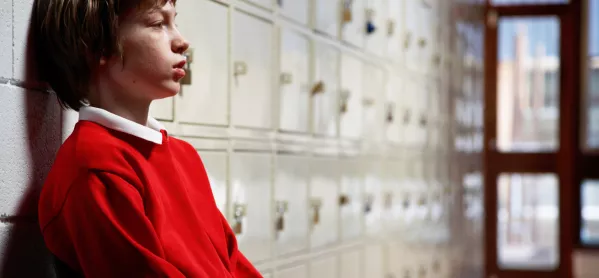The Easter break feels like a hazy memory now, and as the summer term gets underway, the annual anxiety and excitement of every secondary educational establishment is here in our pupil referral unit (PRU).
But there are some noticeable differences, especially as we enter the last term of this academic year.
One of the biggest has been the requirement to predict and subsequently provide evidence to qualify exam grades. A significant proportion of our students are dual registered with local mainstream schools, with their grades included in the home school data.
This means that the communication has had to be first-class in order for these students to be awarded the most accurate and appropriate grades possible.
Covid and schools: How lockdown has affected pupil behaviour
We have had mixed reactions from the students to the changes in the grading process. Some have really taken on board the use of teacher assessment and evidence gathering, exhibiting resolute engagement and focus throughout.
They feel that they have the opportunity to receive a tangible positive outcome for the effort they put into their work, in comparison with the frustration of an exam where they can forget what they’ve learned or get flustered by the pressure.
We also have other students, of course, who would rather be sitting their exams, as in previous years.
Changing cohorts
The summer term also involves quite a considerable change in the pupils we have on roll. A typical PRU cohort is continually in flux; pupils are referred to us across the year and we also have pupils transitioning from us, whether reintegrating back to school, starting afresh somewhere new or being placed as a result of a successful EHCP [education, health and care plan] application.
This process is often at its busiest during this time and the centre can see a considerable change in cohort: one year we saw a change in approximately 40 per cent of the total pupils on roll. It seems that once the pressure and focus associated with Year 11s is over, schools start to consider the upcoming year and how best to support the remaining pupils.
Many of the referrals at this stage are for younger pupils who need support with social and emotional areas, such as self-regulation, anxiety or emotional literacy, especially around expression of anger.
As you can imagine, the introduction of so many pupils means staff have to frequently restate expectations and “resettle” any ongoing clashes within the internal adolescent hierarchy. Success requires careful induction planning, one-to-one and small-group support, as well as a focus on developing efficient, positive staff-pupil relationships.
Testing transitions
This year we have found that, while the majority of schools and pupils have had successful transitions of Year 7s to secondary level, we have already received a number of referrals and expect more this term.
The type of behaviours we are seeing from these pupils is hugely indicative of the fact that they have missed many of the experiences and associated developmental skills during the end of their primary schooling due to Covid-19 restrictions.
It will be interesting to observe the longer-term impact of this and other Covid-related consequences on both the frequency of referral and also the severity of need.
Leanne Forde-Nassey is headteacher at The Key Education Centre, Hampshire, in Hampshire. Ollie Ward is outreach lead at The Key Education Centre, Hampshire




